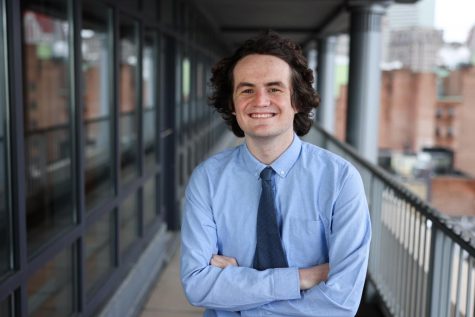Arizona Supreme Court allows enforcement of 1864 abortion law
Arizona’s Supreme Court ruled April 9 that the state could enforce an 1864 law that would allow doctors to be prosecuted after performing an abortion.
According to the Associated Press, doctors or anyone else who assists in an abortion could face a sentence of two to five years in prison. It provides exceptions for when the life of the mother is in danger, but not for incest or rape.
Enforcement of the law can be assumed in 14 days, according to the ruling.
The law was first passed in 1864, over four decades before Arizona became a state in 1912. After the Supreme Court overturned Roe v. Wade in 2022, then-state Attorney General Mark Brnovich, a Republican, urged a state judge to lift a ban on enforcing the law, AP reported.
In a press release April 9, President Joe Biden called the law “cruel” and “dangerous.”
“Vice President Harris and I stand with the vast majority of Americans who support a woman’s right to choose,” the statement said. “We will continue to fight to protect reproductive rights and call on Congress to pass a law restoring the protections of Roe v. Wade for women in every state.”
Arizona’s current law bans abortions after 15 weeks. The enforcement of the 1864 law could effectively outlaw abortion across the state.
Abortion advocates in Arizona have proposed a ballot measure that could enshrine access to abortion in the state constitution if it makes it onto the Nov. 5 ballot. Organizers announced April 2 that the measure had received over 500,000 signatures, according to NBC News, more than 120,000 over the amount needed to appear on the ballot. The signatures are pending verification.
Judge sentences Michigan school shooter’s parents
Jennifer and James Crumbley were each sentenced to 10 to 15 years in prison April 9 after they were convicted of involuntary manslaughter in February and March, respectively.
The Crumbleys are the first parents to be convicted over deaths their child committed in a mass shooting, according to The New York Times. Their son, Ethan Crumbley, was 15 when he killed four students and injured seven others at Oxford High School Nov. 30, 2021, the deadliest school shooting in Michigan’s history.
Oakland County Judge Cheryl Matthews said the Crumbleys had continuously overlooked signs of their son’s deteriorating mental health and had failed to properly secure the handgun he later used in the shooting.
“These convictions are not about poor parenting,” Matthews said. “These convictions confirm repeated acts or lack of acts that could have halted an oncoming runaway train — repeatedly ignoring things that would make a reasonable person feel the hair on the back of her neck stand up.”
Both Jennifer and James Crumbley have been in jail for over two years awaiting trial, which will count toward their sentences, and will be eligible for parole after 10 years, according to the Associated Press.
Ethan Crumbley, now 17, is serving a life sentence for murder and terrorism.
Biden announces new student loan forgiveness plan
President Joe Biden detailed a student loan forgiveness plan that could aid nearly 30 million borrowers April 9, with 10 million borrowers possibly seeing more than $5,000 in forgiveness.
Biden announced the plan in a speech to a small group of supporters in Wisconsin, according to the New York Times.
“While a college degree still is a ticket to the middle class, that ticket is becoming much too expensive,” Biden said during the speech. “Today, too many Americans, especially young people, are saddled with too much debt.”
The plan, according to Biden, will help the economy by enabling those with student debt to buy homes or build financial stability.
“We’re giving people a chance to make it,” Mr. Biden said. “Not a guarantee. Just a chance to make it.”
This is the second attempt by Biden to tackle student loans after a 2022 plan to eliminate more than $400 billion in loans was struck down by the Supreme Court. According to White House officials, this new plan is different because it targets specific groups who have student loans, as opposed to the first attempt of broadly eliminating loan debt.




















